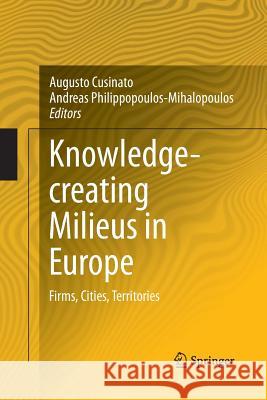Knowledge-Creating Milieus in Europe: Firms, Cities, Territories » książka
topmenu
Knowledge-Creating Milieus in Europe: Firms, Cities, Territories
ISBN-13: 9783662512333 / Angielski / Miękka / 2016 / 376 str.
Kategorie:
Kategorie BISAC:
Wydawca:
Springer
Język:
Angielski
ISBN-13:
9783662512333
Rok wydania:
2016
Wydanie:
Softcover Repri
Ilość stron:
376
Waga:
0.59 kg
Wymiary:
23.39 x 15.6 x 2.21
Oprawa:
Miękka
Wolumenów:
01
Dodatkowe informacje:
Wydanie ilustrowane











